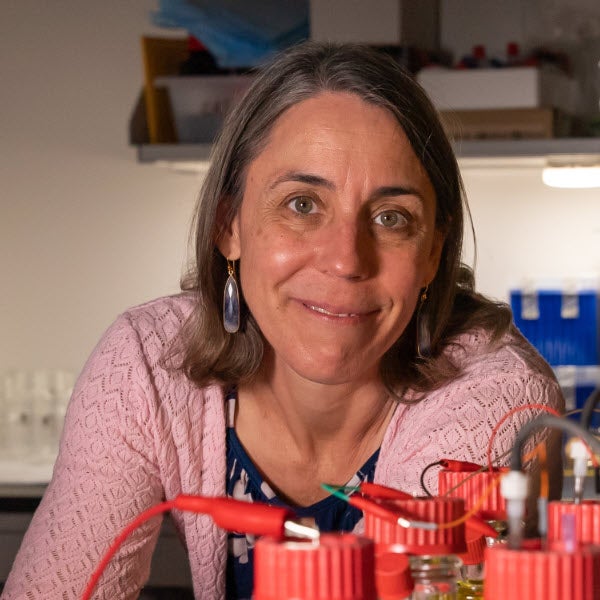“WORLD NEEDS IN 2050 AND HOW SYNTHETIC BIOLOGY COULD HELP”
By 2050, there will be an estimated 10 billion people on Earth. These people will need increased clean water, food, materials and medicines. These needs must also be met in a way that mitigates climate change and in the face of dwindling natural resources. Biological systems purify water, produce food and materials, and are a major source of therapeutic strategies — accomplishing all of this with dilute natural resources and low energy inputs. Thus, engineered biological systems made via synthetic biology are possible approaches to solving these global challenges. In this talk, Ajo-Franklin will provide an overview of global challenges that synthetic biology might be able to address as well as the potential roadblocks to synthetic biology solutions.
Biography
Caroline Ajo-Franklin started her research career in chemistry, earning a B.S. in chemistry from Emory University in 1997 and a Ph.D. in chemistry from Stanford University in 2004. She then moved to Harvard Medical School to be a postdoctoral fellow with Pam Silver, where she was one of the first cadre of postdocs working in the emerging field of synthetic biology. She then launched her independent research career as a Staff Scientist at Lawrence Berkeley National Laboratory in 2007. In 2019, she moved to Rice as a professor of biosciences, with joint appointments in the Department of Bioengineering and the Department of Chemical and Biomolecular Engineering. Ajo-Franklin has developed a highly interdisciplinary and collaborative research program that focuses on exploring and engineering the interface between living organisms and nonliving materials. Ajo-Franklin was named as a recipient of the Women @ The Lab award in 2018, a Cancer Prevention and Research Institute of Texas (CPRIT) Scholar in 2019, and the first director of the Rice Synthetic Biology Institutein 2023.

